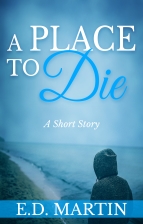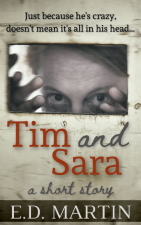I know I say it a lot, but I love road trips. Not only do I get to see beautiful/weird new stuff and eat great food, but the trips are a great way for me to recharge, think my way through stories I’m working on, and gather ideas for new stories.
 |
| Niagara Falls’ rapids |
But I’m currently a bit on the broke side, so I have to find ways to get my fix as cheaply as possible. I’ve taken two big trips this summer – camping in Minnesota and Thunder Bay, and a recent sightseeing trip to Detroit and Toronto – as well as multiple trips the summer before – New Orleans and Pensacola, FL; Door County, WI; and Duluth, MN – and have come up with some useful tips I thought I’d share.
First, all road trip expenses can be broken into four basic categories: transportation, lodging, food, and activities (I guess you can make the case that souvenirs is a fifth category, but I don’t tend to buy any). No matter where you go, if you’re staying overnight you’re going to have costs from each category.
Transportation
| abandoned pirate ship outside Hamilton, ON |
- Take a fuel-efficient car. Mine, for example, gets about 30-35 mpg on the highway. Especially for long distances, you’ll really notice fuel savings. What if you drive one of those big manly 10 mpg trucks? Consider renting a sedan. Even with the price of the rental, you’ll still save money.
- Take highways instead of interstates. You get the best mileage the closer you are to 55 mph, which is the speed limit on most highways, compared to 65-70 on interstates. Plus you get to see more local flavor on highways than you do on the interstate, which is mostly stripmalls, chain restaurants, and hotels clustered around exits, and farmland.
- If you’re in a big city, look into a day pass for public transportation. It’ll cost less, plus you’ll be glad to not have the stress of driving in big-city traffic (Minneapolis, for example, is hell, no matter when you’re there).
Lodging
- Obviously free is best, so if you’re going somewhere where you know someone, see if you can stay with them.
- Don’t know anyone? How about camping? (By which I mean sleeping in a tent; staying in a 40-ft RV complete with cable TV, two bathrooms, and air conditioning is NOT camping. Plus it goes against tip #1 above.) Campgrounds are way cheaper than hotels, and many state and local parks are free; check websites for nearby parks before you go, as many require advance reservations.
- If you want to sleep inside (it’s winter or stormy, maybe), stay at a cheap hotel. I’m not talking bed bugs, chalk outlines, and long-term residents with no teeth – put your health and safety first, of course – but do you really need to stay somewhere with hardwood floors and seven pillows on each bed if you’re just using the room to sleep in? In addition to checking travel sites like Orbitz and Travelocity, look at the town’s website; it often has a section with quirky local low-priced hotels not found through the big travel sites.
Food
 |
| Our Toronto hotel came with free snacks! |
- The problems with roadside fast food meals are that they get expensive, they’re unhealthy, and you soon get sick of the same thing over and over. (“Hmm, what’s for lunch? Burger from McDonald’s? Burger from Wendy’s? How about a burger from Hardee’s? No, I think I’ll go for a burger from Sonic.”) Avoid all this by bringing a cooler of food with you. Sandwiches are super easy on the go; either make them in advance or stop at a park and assemble them there.
- Same thing with snacks and drinks: buy them in bulk at the grocery store rather than at gas stations and rest stops. Chips, fruit, and sodas are all cheaper this way, plus you get more variety. I bring gallon jugs of water with me ($.39 refills at the local grocery store) and refill my water bottle rather than buying bottled water. There’s less garbage this way too.
- Stay at a hotel with a refrigerator and microwave in the room. Some places even have kitchenettes included in the rooms, stocked with basic dishes and pans; hit a local grocery store and cook your own meals. I keep a small tub of kitchen stuff in my car, just in case: a couple each of plates, bowls, glasses, and silverware.
- Free continental breakfast! Another advantage to staying at low- and mid-priced hotels is that they offer free breakfast; pricier hotels often have an attached restaurant and expensive room service.
Activities
 |
| Sometimes I have to physically restrain the kid in order to get a picture |
- Especially when I’m on a trip by myself, I love hiking around – for free. I’ve taken some awesome pictures at free places, like parks and lakeshores.
- Do you really need to go in? My kid is six and has a super short attention span; we get inside somewhere (St. Louis Arch, Ford Rouge Factory in Detroit, CN Tower and Casa Loma and zoo in Toronto, Niagara Falls…), he looks around for all of three minutes, and then he starts bugging me to leave. The pricier the admission, the longer I make him stay – but some of these places really aren’t worth the price, and I’d be just as happy snapping a picture outside for free.
- Sometimes it’s worth it to bundle. In Toronto, for example, we bought City Passes – admission to five places, four of which I wanted to go to, for way less than buying them individually. Make sure you do the math though, to guarantee individual prices of what you plan to do aren’t less than the pass itself.
What are some travel tips that work for you?





